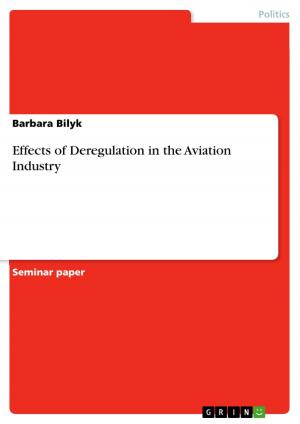Metaphor - The Structure of the Domain 'Anger'
The Structure of the Domain 'Anger'
Nonfiction, Entertainment, Drama, Anthologies| Author: | Thorsten Witting | ISBN: | 9783638248808 |
| Publisher: | GRIN Publishing | Publication: | January 28, 2004 |
| Imprint: | GRIN Publishing | Language: | English |
| Author: | Thorsten Witting |
| ISBN: | 9783638248808 |
| Publisher: | GRIN Publishing |
| Publication: | January 28, 2004 |
| Imprint: | GRIN Publishing |
| Language: | English |
Seminar paper from the year 2003 in the subject English Language and Literature Studies - Linguistics, grade: 1 (A), Carl von Ossietzky University of Oldenburg (Anglistics), course: Metaphor and Metonymy, 11 entries in the bibliography, language: English, abstract: The general idea of this paper is to compare different approaches to metaphor, viz. lexicographical definitions by means of dictionaries, specialists' definitions by means of Lakoff and Johnson's definition, theoretical background (Turner, Langacker and Sweetser) and lexical definitions by Kövecses. These approaches seem to be quite contradictory at first glance and the question whether it is a contradiction or not will be addressed in the fourth chapter. The definitions will be discussed in the first chapter, together with a short definition of the crucial terminology. An important aspect of metaphors according to Lakoff and Johnson is the transfer of meaning form a target domain to a source domain. The second chapter is about the internal structure of domains, based on Langacker's approach, and about the process of the transfer of meaning used in metaphors. This transfer is called mapping and the description rather than definition is based mainly on Turner and Sweetser. Another important aspect of metaphor according to Lakoff and Johnson is the experiential basis used in the meanings expressed, which will be based mainly on Sweetser. The case study is about Kövecses' concept of the conceptual metaphor ANGER, a sub-category of the higher-up domain EMOTION, is based upon what Kövecses calls the 'prototype scenario' - i.e. the probable way anger builds up, is conceived of and expressed in language and bodily experience.
Seminar paper from the year 2003 in the subject English Language and Literature Studies - Linguistics, grade: 1 (A), Carl von Ossietzky University of Oldenburg (Anglistics), course: Metaphor and Metonymy, 11 entries in the bibliography, language: English, abstract: The general idea of this paper is to compare different approaches to metaphor, viz. lexicographical definitions by means of dictionaries, specialists' definitions by means of Lakoff and Johnson's definition, theoretical background (Turner, Langacker and Sweetser) and lexical definitions by Kövecses. These approaches seem to be quite contradictory at first glance and the question whether it is a contradiction or not will be addressed in the fourth chapter. The definitions will be discussed in the first chapter, together with a short definition of the crucial terminology. An important aspect of metaphors according to Lakoff and Johnson is the transfer of meaning form a target domain to a source domain. The second chapter is about the internal structure of domains, based on Langacker's approach, and about the process of the transfer of meaning used in metaphors. This transfer is called mapping and the description rather than definition is based mainly on Turner and Sweetser. Another important aspect of metaphor according to Lakoff and Johnson is the experiential basis used in the meanings expressed, which will be based mainly on Sweetser. The case study is about Kövecses' concept of the conceptual metaphor ANGER, a sub-category of the higher-up domain EMOTION, is based upon what Kövecses calls the 'prototype scenario' - i.e. the probable way anger builds up, is conceived of and expressed in language and bodily experience.















